Ignite the Pulpit
Thanksgiving and thankfulness
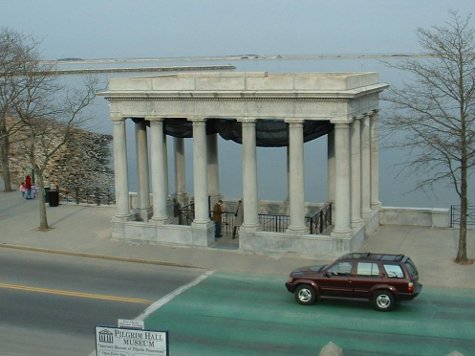
Our American tradition of celebrating Thanksgiving has often been reduced to discussions about the turkey with little regard for the Pilgrims – whom we regard as austere men and women dressed in depressing black garb. The truth is significantly different. The women were known to prefer red for their clothing, in addition to wearing a variety of other bright colors – and the buckles that we believe they wore on their hats didn’t exist yet. However, the reality of who they were and what they accomplished is more worthy of celebration than the abundances of the Thanksgiving table. Their tale is one of inspiration and hope and also one that should identify us as a people.
Gutenberg and the Bible
The story of the Pilgrims began with the invention of Gutenberg’s printing press. Prior to this, Bibles were handwritten by scribes. This made them much too expensive for average men and women to purchase. As a result, the lessons of the Bible were left to the churches and their hierarchy to interpret for the people. These teachings were tainted by the ambitions of power-crazed men who used them to ensure the continuance of their own careers instead of using them to teach people about the character and nature of God. Gutenberg changed that. The first book he printed was the Bible. This made it affordable for many, who were able to discover the fallacies of the dogmas and doctrines they had been taught. It was a watershed occurrence.
Their newfound knowledge led these believers to protest the Church of England and its operations. Thus, they became 15th century outlaws who were persecuted and harassed endlessly.
Eventually, they left England and went to Holland. This earned them the name “Separatists” because they chose to separate themselves from the established church. On the other hand, the Puritans has a similar experience but chose to try to “purify” the church from the inside out, hence earning them the name “Puritans.” They eventually had to leave England as well.
The Pilgrims’ providential landing
Life in Holland was hard for the new immigrants that did not speak the language. After years of toil, they believed that God was calling them to the New World to spread the gospel and establish the New Jerusalem. They were now called “Pilgrims.” After a brutal three month trip in the hull of the Mayflower that earned them the name of “psalm-singing puke-stockings” from the crew, they finally arrived in Plymouth Harbor. Their willingness to suffer for their faith demonstrates the strength of their commitment to worship freely. However, what they experienced next should only be interpreted as “Providential.”
Upon arrival in Plymouth Harbor in the early winter, they happened upon a land that was cleared by its prior residents, who were mysteriously gone. As it turns out, the Indian tribe that had resided there was a particularly savage group that had been wiped out by a disease called Indian Fever. The tribe’s story was told by their only survivor, an Indian called “Squanto” for short. And once again, Squanto’s experiences and presence on the scene to welcome the Pilgrims is nothing less than Providential.
Squanto had been kidnapped and released several times by English captains, all of whom treated him well. During his time in captivity, he traveled extensively through Europe, learning English and civilized behavior. He did not consider the White Man his enemy but had learned their ways as well as their language. By 1619, one year before the Pilgrims arrived, Squanto made it back to his homeland in Plymouth, where he found that his entire tribe had died.
To recap:
- The Pilgrims landed at a destination different from the one they had navigated, and there they found land that had been previously cleared and ready to farm.
- The tribe that had resided there was a particularly savage one but had been wiped out by disease, leaving them without enemies present.
- Living on the land was an Indian who spoke English, had learned their customs, and was not hostile but very willing to help them to survive.
Two Thanksgiving feasts
 There is more to the incredible story of Thanksgiving. Thanks to Squanto, the Pilgrims survived their “starving time” when they lost 50 of their 102 people, and in 1621, they celebrated their plight by having a feast and giving thanks to God. But their abundance didn’t last long. Soon a boat load of unprepared English travelers arrived on their shores. The Pilgrims were not equipped to feed these newcomers but did, never-the-less. That charitable decision cost them much. They now found themselves having to live on a ration of five kernels of corn per day – and miraculously this sustained them through the winter of 1622.
There is more to the incredible story of Thanksgiving. Thanks to Squanto, the Pilgrims survived their “starving time” when they lost 50 of their 102 people, and in 1621, they celebrated their plight by having a feast and giving thanks to God. But their abundance didn’t last long. Soon a boat load of unprepared English travelers arrived on their shores. The Pilgrims were not equipped to feed these newcomers but did, never-the-less. That charitable decision cost them much. They now found themselves having to live on a ration of five kernels of corn per day – and miraculously this sustained them through the winter of 1622.
In spite of one more close call with a near weather disaster during the planting and harvesting season, the Pilgrims experienced a bountiful harvest the following summer of 1622. So great was their food surplus that they were able to trade with other northern Indian tribes who had not reaped such an abundance. And so came the second Thanksgiving feast with Sachem Massasoit and company—who again brought turkeys and venison. They celebrated for three days – once again, not in keeping the images we have of a stern group of men and women who wore nothing but black.
There was something about the second Thanksgiving that is worth mentioning. The first course was served on an empty plate in front of each person with five kernels of corn to remind them of their humble beginnings.
Thanksgiving and remembrance
Thanksgiving is a celebration feast to be thankful for what we have, but it should also be a time to remember the sacrifices others made for us so that we can enjoy the blessings of America. Perhaps this Thanksgiving, you may want to consider placing five kernels of corn on an empty plate to take the time to thank God for the abundance of His blessings. And don’t forget to remember the Pilgrims. We owe them much. They were able to choose following God’s path in spite of everything that spoke against it. The United States of America as we know it would not exist if it were not for their bravery and commitment to God. Yes, this is a time to be thankful – and it is also a time to remember on whose shoulders we stand.
Reprint from The Daily Rant, copyright 2016 Mychal Massie, by permission.
RoseAnn Salanitri is a published author and Acquisition Editor for the New Jersey Family Policy Council. She is a community activist who has founded the Sussex County Tea Party in her home state and launched a recall movement against Senator Robert Menendez. RoseAnn is also the founder of Veritas Christian Academy, as well as co-founder of Creation Science Alive, and a national creation science speaker.
-
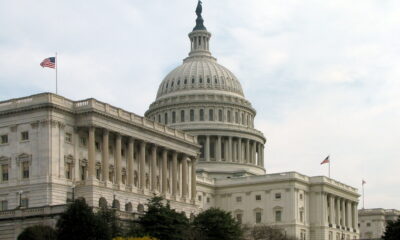
 Civilization5 days ago
Civilization5 days agoEnd the Filibuster – Or Stop Pretending To Govern
-

 Civilization4 days ago
Civilization4 days agoA Better U.S. Strategy for Greenland Than Annexation
-

 Education4 days ago
Education4 days agoIgnoring the Science: The Curious Case of Cell Phone Bans
-
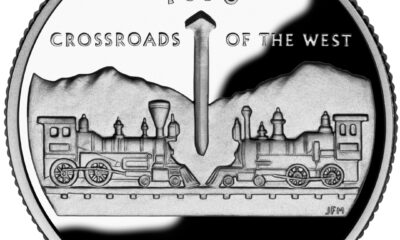
 Executive3 days ago
Executive3 days agoWaste of the Day: Utah University Trustees Don’t Know Their Job
-

 Education5 days ago
Education5 days agoA Solid Core Enlivens Free Speech and Viewpoint Diversity
-

 Executive4 days ago
Executive4 days agoWaste of the Day: $8 Water Filter Costs the Government $156
-

 Civilization3 days ago
Civilization3 days agoTrump’s Longest Speech, His Shortest Margin for Error
-

 Executive2 days ago
Executive2 days agoWaste of the Day Throwback Thursday – USDA Advertised Caviar










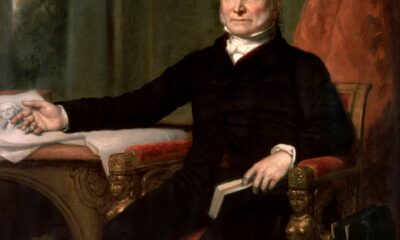

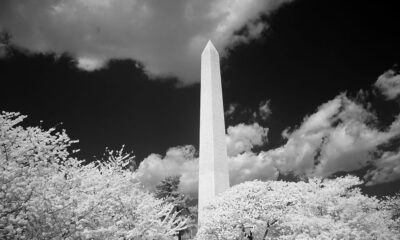

We can all be thankful to be able to live in America. Thanks, Terry.
Jan Nyce liked this on Facebook.
Bennie Sue West liked this on Facebook.
Cathy Maida liked this on Facebook.